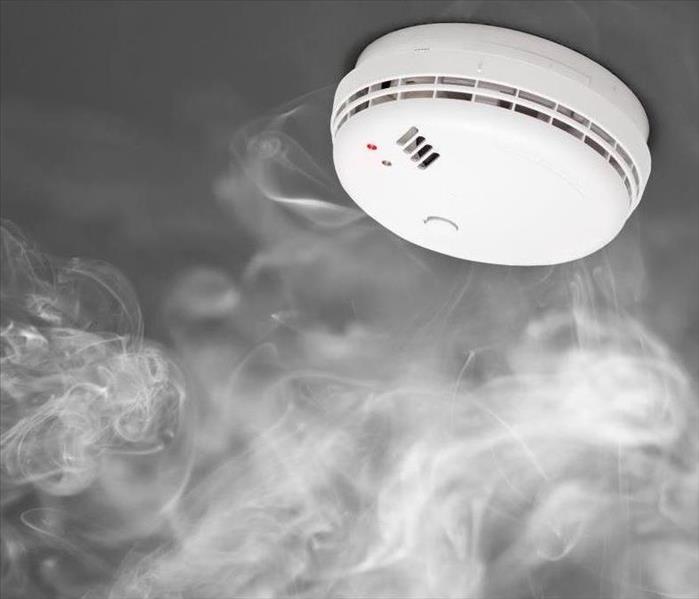4 Types of Fire Alarms for Your Business
12/2/2019 (Permalink)
You only want the best when it comes to choosing a fire detector for your commercial building. Fire alarm protection systems safeguard your property against smoke and fire threats, preventing injuries and damage. There are many types of alarms available on the market. To help you make an informed decision, here are some of the most popular choices and how they work.
Different Fire Alarm Protection Systems
Heat Detectors
Heat detectors respond when a fire raises the temperature of a room. These alarms are triggered once temperatures rise above 135 degrees Fahrenheit. Since they only function as a heat-sensitive unit, they're meant to supplement smoke alarms to improve fire detection. For the best response, have heat detectors installed in areas where fumes and smoke are likely to collect, such as rooms without windows.
Ionization Smoke Alarms
Fire alarm protection system Ionization smoke alarms are best at detecting abrupt fires. The ionization chambers inside these fire alarm protection systems contain traces of radioactive particles that trigger when smoke enters the unit. Since these alarms are more sensitive to smoke, they can create false positives when someone burns their food in a microwave, for example.
Photoelectric Smoke Alarms
Photoelectric alarms are useful for detecting smoldering fires that create a lot of smoke. The inner components contain light beams aimed toward sensors. When smoke particles enter the chamber, the light beam inside is refracted from the sensor, activating the alarm. It's recommended placing these fire protection systems in areas with low dust buildup, since dust particles are known to accidentally trigger them.
Dual-Sensor Smoke Alarms
When you combine the sensors from ionization and photoelectric fire detection systems, you get dual-sensor smoke alarms. These types of fire alarms protect your building from both smoldering and lightly flaming fires. Since most models are designed to activate when both sensors are triggered, you'll get less false alarms than with single-sensor fire alarms. However, dual-sensor units may respond slower, causing a delay in response if a fire occurs.






 24/7 Emergency Service
24/7 Emergency Service
